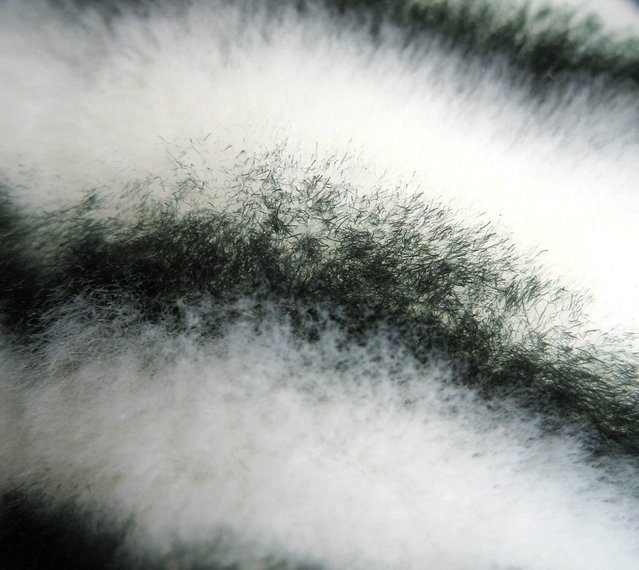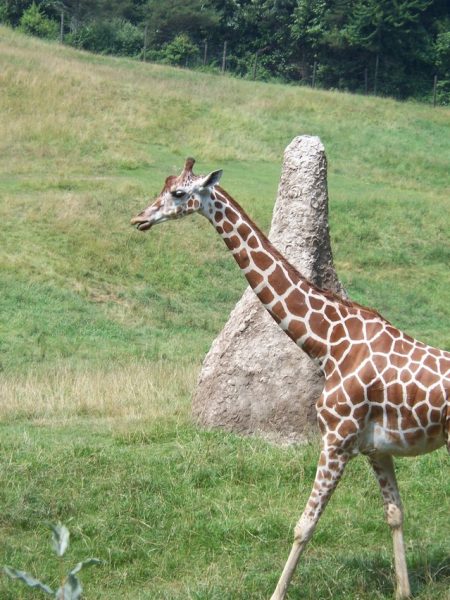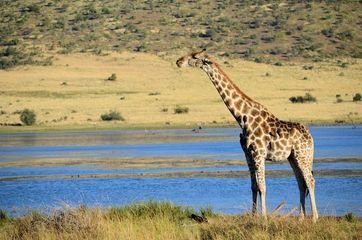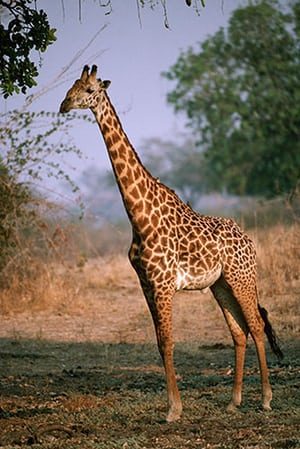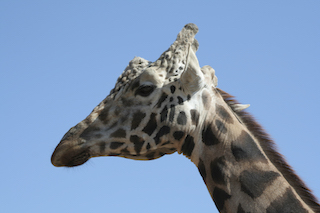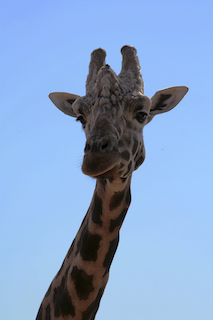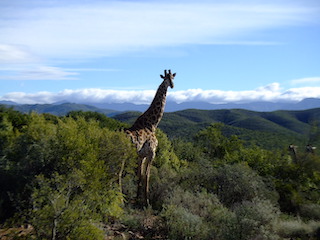Nine Species Of Giraffes In Africa
There are 9 possible species of giraffes in Africa, although the taxonomy is not widely and popularly agreed. They are the Reticulated or Somali giraffe, Kordofan giraffe, Nubian giraffe, South African or Cape giraffe, Angolan or Smokey giraffe, West African or Nigerian Giraffe, Maasai or Kilimanjaro giraffe, Rhodesian or Thornicroft giraffe and Rothschild or Ugandan giraffe. One can differentiate them by range as well as by the color and size of their coat patterns.
Reticulated, Netted, Somali giraffe
Other name for Reticulated giraffes is Somali giraffe. This subspecies lives in southern Ethiopia, northeastern Kenya, and Somalia. It has the most complicated spot patterns of any subspecies. Their clear dark orange-brown spots are large with narrow channels between them that make them appear darker than other species. Bold and bright white lines separate the sharp-edged patterns. The design looks like a perfectly-planned mosaic and creates a web-like effect. Reticulated giraffes are common in the zoos. Around 450 are captive in zoos. There are fewer than 5,000 of them in the wild, down from 31,000 in 1998.
Kordofan giraffe
Native to Chad, Cameroon and the Central African Republic, the Kordofan giraffe has smaller and random spots that extend to the inner legs. There are about 65 of them in the zoos, and 3,000 remain in the wild.
Nubian giraffe
The Nubian Giraffe subspecies thrives in eastern Sudan and the northeastern Democratic Republic of Congo. Their coat pattern consists of large and four-sided spots which are chestnut brown in color on an off-white background. There are no spots on the inner sides of the legs. It is very rarely in captivity. But having said that, the zoo in Al Ain of United Arab Emirates has one. There are fewer than 250 of them in the wild, although this figure is uncertain.
South African giraffe
Native to Botswana, Mozambique, Zimbabwe and South Africa, the South African giraffe has blotched, rounded or star-like extension spots on a light tan background that run all the way down to the hooves. About 45 of them are in the zoos, and 12,000 of them remain in the wild.
Angolan, Smokey giraffe
Described as Smokey because of their light color, Angolan giraffes have notched indentations in their large spots on a white to a cream background, extending down the lower legs. The lines between spots are darker than other giraffes, making them harder to distinguish from their spots. They occur in Angola, Namibia, Zambia, Botswana and Zimbabwe. About 20 of them are in the zoos, and 20,000 of them remain in the wild.
West African giraffe
Commonly called the Nigerian or West African giraffe, this subspecies of giraffe has numerous pale and yellowish red spots. They are light in appearance, with rectangular tan blotches. Cream-colored lines separate the patterns. There are no patterning on their lower limbs. It is the rarest subspecies with only 220 of them remaining in the wild.
Rhodesian, Thornicroft giraffe
Luangwa Valley in eastern Zambia is home to the Rhodesian giraffe. It is also known as the Thornicroft giraffe. It has star-shaped spots that extend to the lower leg. They are never in the zoos, but an estimated number of 1,500 roam around in the wild.
Rothschild, Ugandan, Baringo giraffe
Rothschild giraffes look very similar to Maasai giraffes at first glance. They too have edges that are wavy on their spots. The spots are deep brown, rectangular or blotched with poorly defined cream lines. But the subspecies can be identified by the cream color below their knees that look like creamy stockings with no pattern. They roam the savannas of Uganda, Kenya, and Sudan near Lake Baringo. Therefore, they are also called Ugandan giraffe or Baringo giraffe. Fewer than 700 are in the wild and 450 of them are kept in zoos.
Maasai, Kilimanjaro giraffe
The highest numbers of subspecies of giraffes in the wild are the Maasai giraffes. People also call them Kilimanjaro giraffes. The Maasai giraffe is the tallest land mammal and the largest subspecies of giraffe. They’re also the ones most likely to be seen during safaris in Kenya and Tanzania. In fact, the Giraffe Manor in Kenya doubles as a Maasai giraffe sanctuary and a place to hang out with giraffes all day long. Maasai giraffes have the darkest spots that appear almost black, and the lighter color between the spots is darker than other giraffes. The dark brown spots on a brownish-cream background seem like vine leaves with jagged edges. They also look like oak leaves, with rounded indentations and wavy, ridged edges. About 100 of them are in the zoos, and 40,000 of them remain in the wild. However, recent reports would suggest that their population is on the decline.
Cluster of subspecies
Some scientists regard West African and Kordofan giraffes as a single subspecies; the same way with Rothschild’s and Nubian giraffes, as well as with South African and Angolan giraffes. Further, some scientists consider all of them except the Maasai giraffes belonging to a single subspecies. Some others have proposed four other subspecies – Lado giraffe, Cape giraffe, Transvaal giraffe, and Congo giraffe – but none of them is widely accepted.
5 Frequently Asked Questions About The Types Of Giraffes
To receive a colourful digibook about giraffe with videos, images and text, please fill out the following form or simply email us on safaris@safari-center.com

